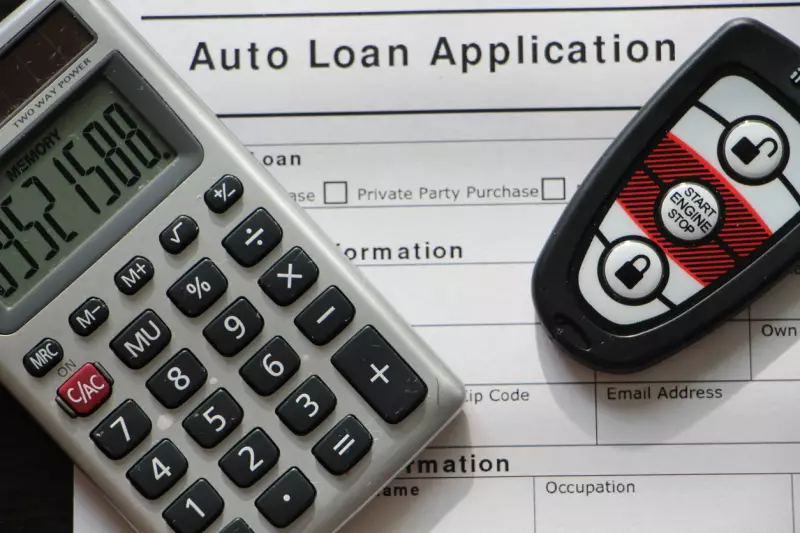Many car buyers purchase their cars on finance. Hence, when purchasing a car, choosing the right financing option is important to ensure the purchase does not impact your finances and lifestyle critically. Consequently, Personal Contract Purchase (PCP) has emerged as one of the most popular car financing methods, especially in the UK.
The main advantage of PCP finance lies in its ability to provide a balance between affordability and flexibility. With relatively low initial costs and manageable monthly payments, many car buyers in the UK, especially those who like to change cars regularly, now opt for this financing plan. PCP allows you to enjoy the perks of driving a new car, whether for its advanced features or improved efficiency, without immediately committing to full ownership.
What is PCP Car Finance?
Understanding the PCP meaning is important before establishing what it entails. PCP is short for personal contract purchase. It is a flexible financing option used by car buyers as it offers lower periodic payments than other car finance agreements such as a personal loan or hire purchase. Typically, car PCP allows car buyers to pay for a vehicle with an initial deposit and follow up with installments over an agreed period.
Car PCP is a loan but is different from other loan options in that it has a GFMV (Guaranteed Minimum Future Value) feature, which determines the predicted value of the car at the end of the agreement. The GMFV is the basis of the optional final payment as it ensures that if you decide to return the car, its deprecation is not your responsibility, provided certain conditions are met.
How Does PCP Work?
Car PCP works in the following ways:
- Deposit: A car PCP requires an initial deposit, which may be up to 20% of the vehicle's estimated value. It works in a way that allows you to pay fewer monthly payments when larger deposits are made.
- Monthly Payments: The dealership stipulates a contract and its terms and proceeds to calculate a difference between the initial value of the car and its GMFV at the end of the contract term as a depreciation value. After, you and the dealership will agree on the monthly payment value throughout the contract. This payment typically covers the depreciation value and agreed interest. Since you are not paying off the full value of the car, monthly payments in PCPs are generally lower than traditional loans.
- End-of-Contract Options: At the end of a car PCP contract term, you are typically presented with three options:
- Pay the GMFV: In this case, you decide to retain the car and therefore pay the Guaranteed Minimum Future Value at the end of the term. Paying the GMFV makes the car your own.
- Return the car: Here, you return the car and have no obligation as long as you remain within the mileage limits and no excessive wear and tear is identified in the car.
- Trade in the car: This option is like refinancing to get a new car and is the most common option as it allows you to use the current value of the car as equity towards a new personal contract purchase deal for a new car. Hence, if the car is valued at a higher price than the GMFV, the equity may reduce the cost of the next PCP financing contract.
PCP Example in Practice
You may finance a $40,000 car with an agreed GMFV OF $20,000 after three years. Say you submit a $5,000 deposit, the remaining $15,000 payment will be divided over 36 months, resulting in an approximate monthly payment of $417 per month, excluding interest. At the end of three years, which is the contract term, you may decide to pay the $20,000 to retain the car, return the car, or trade it in.
PCP vs Lease: What’s the Difference?

Many people looking to finance a car often confuse personal contract purchases with leasing since they both involve making monthly payments. However, both terms do not mean the same thing. The key differences between PCP and leasing include:
- Ownership Potential: In a car PCP, you may choose to pay the GMFV, also called a "balloon payment" at the end of the contract term to own the car. In leasing, ownership is not in view as the car must be returned to the leasing company at the end of the agreement period. If you're buying a used car, always check whether it’s still on finance, as the legal ownership remains with the lender until the balance is cleared.
- Payment Structures: In leasing, your payment generally includes maintenance or service packages, while in car PCP, you are responsible for additional costs such as insurance, servicing, and repairs.
- Flexibility: PCP is more flexible than leasing in that you have several options when the contract term ends, such as paying to keep the car, returning it, or trading it in for a new deal. On the other hand, leasing is more straightforward and less flexible as you return the car and have no additional obligations or options to retain or trade in the vehicle.
When making a choice between personal contract purchase and leasing, consider your specific needs, lifestyle, and financial priorities. If you think there is a chance you may want to own the car long-term or if you drive limited miles, a personal contract purchase may be a better choice as it gives you the option to buy the car at the end of the contract or let the car's trade-in value go toward a new car financing deal.
However, if you prefer all-in-one packages so that you do not have to worry about maintenance and repair costs, leasing may be better as repair and maintenance expenses come bundled into leasing deals. Also, if you prefer driving new cars, or changing cars every few years, without having to bother about ownership or resale value, leasing may be the better choice.
Pros and Cons of Financing a Car with PCP
If you decide to go with a personal contract plan, you should be aware of the benefits and drawbacks before proceeding. Personal contract plan pros include:
- Lower Monthly Payments: It generally has lower monthly payments since its payments do not cover maintenance, insurance, or repair costs.
- Access to Higher-End Car Models: The lower payment feature of the PCP financing plan means that you may be able to afford a more premium car than with a conventional loan.
- Flexibility at the End of the Term: You may opt to keep the car by paying the balloon payment, trade it in for a new deal, or return it with no further obligations if no damage or mileage limit is crossed.
- Predictable Financial Commitment: In PCP, the Guaranteed Minimum Future Value (GMFV) agreed upon locks in the resale value of the car, protecting you from unexpected depreciation.
While the cons of choosing a personal contract plan are:
- Mileage Limits: Agreements in personal contract plans contracts generally stipulate strict annual mileage caps. If you exceed these caps, it may result in serious penalties.
- Large Balloon Payment: Should you decide to keep the car at the end of the contract term, the final GMFV payment may be significant and require additional financing.
- Additional Costs: While the car remains under warranty, any damage beyond normal wear and tear may lead to additional charges at the end of the contract.
Common Mistakes to Avoid When Choosing PCP
If you choose to go for a PCP when financing a car, you must consider common mistakes that people make to avoid unexpected costs. Common mistakes made by people include:
- Failing to understand the GMFV: The Guaranteed Minimum Future Value is crucial since it determines the residual value of the car at the end of the contract. This mistake has a huge consequence as it impacts the final payment options, which may result in surprises. To avoid this mistake, you may ask the dealership to explain how the GMFV is calculated and try to understand its role in the agreement contract.
- Choosing Unrealistic Mileage Caps: Mileage caps are generally part of PCP agreements and exceeding them may result in serious penalties. Hence, you should be honest with your driving habits and choose a mileage limit that correctly indicates your lifestyle, even if that means you pay slightly higher payments.
- Ignoring Interest Rates and Total Costs: The dealership will include interest rates in the monthly payments you will make, impacting the total amount you will pay. Hence, we should not focus only on low periodic payments without considering the interest component. You should compare the annual percentage rate from different dealerships and ask for a breakdown of the total costs, including interests, before signing an agreement.
If, despite these tips, you are still not sure whether PCP is for, consider consulting a financial advisor or trusted expert in order to understand the fine print of the agreement proposed by the dealership. Also, many dealerships are open to answering questions from their clients. Therefore, you may seek further clarification from them to understand the terms of the agreement.




















